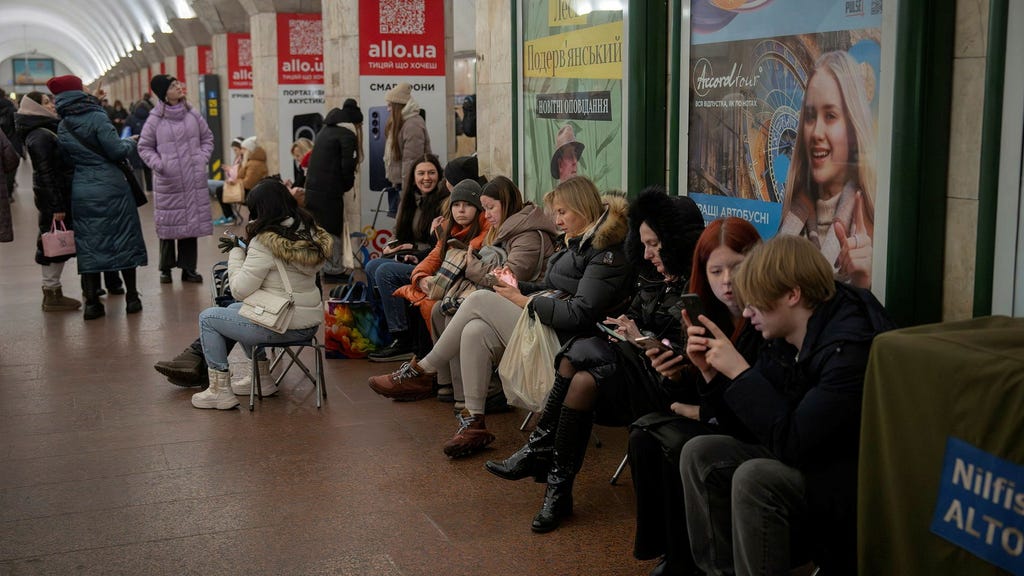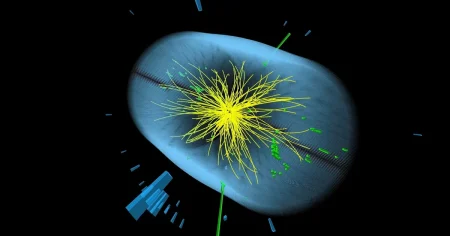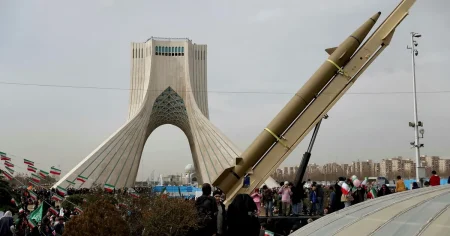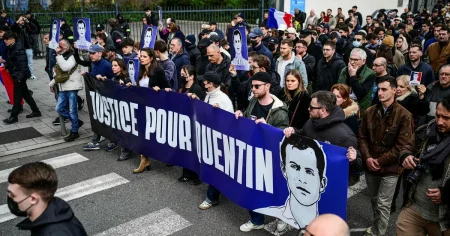Christmas Day Assault on Ukraine: A Deliberate Act of Inhumanity
On Christmas Day, as the world celebrated peace and goodwill, Russia unleashed a barrage of missiles and drones upon Ukraine, targeting critical energy infrastructure and plunging cities into darkness. This calculated attack, occurring on a day traditionally reserved for joy and family, underscores the depths of Russia’s cruelty and disregard for human life. Initial reports from Kharkiv, the second-largest city in Ukraine, described a series of explosions echoing through the urban landscape, followed by confirmations of ballistic missile strikes. While no fatalities were immediately reported, six individuals sustained injuries, and several fires erupted across the city. The attacks, according to local officials, primarily focused on energy infrastructure rather than residential areas, a tactic consistent with Russia’s ongoing strategy to cripple Ukraine’s power grid, particularly during the harsh winter months.
Ukrainian President Volodymyr Zelenskyy condemned the Christmas Day attack as a deliberate act of inhumanity, emphasizing the symbolic significance of the date chosen by Russian President Vladimir Putin. Zelenskyy highlighted the sheer scale of the assault, noting that over 70 missiles, including ballistic missiles, and more than 100 combat drones were deployed. He reiterated that the primary objective remained Ukraine’s energy sector, further solidifying Russia’s intent to deprive Ukrainian citizens of basic necessities like heat and electricity amidst freezing temperatures. This relentless targeting of energy infrastructure constitutes a grave violation of international humanitarian law and represents a cynical attempt to inflict maximum suffering on the civilian population.
Beyond Kharkiv, the Christmas Day onslaught extended to other regions of Ukraine. Explosions were reported in Kryvyi Rih and Dnipro, two strategically important cities. Air raid sirens blared across the country as kamikaze drones and Kalibr cruise missiles, launched from the Black Sea, threatened further devastation. The governor of Dnipropetrovsk Oblast confirmed the widespread air raid warnings and emphasized Russia’s persistent aim to dismantle Ukraine’s energy grid. This strategy, consistent with previous attacks, aims to destabilize the country, demoralize its citizens, and disrupt essential services during the winter season.
The widespread nature of the attacks and the targeting of energy infrastructure prompted swift action from Ukrenergo, the state-owned energy company. Ukrenergo announced the implementation of emergency measures to limit electricity consumption and introduced scheduled power outages to conserve dwindling resources. These rolling blackouts, while necessary to manage the strain on the grid, further exacerbate the hardships faced by Ukrainians struggling to cope with the already challenging winter conditions. Reports of explosions and unexpected power outages also emerged from Krementchuk in central Ukraine and Ivano-Frankivsk in the west, underscoring the broad geographic scope of the Christmas Day attacks. The westward expansion of these assaults led Poland to heighten its military alert level, scrambling fighter jets and bolstering its air defenses. This reaction highlights the increasing regional security concerns stemming from the ongoing conflict in Ukraine.
The Christmas Day attack followed a similar large-scale missile and drone assault the previous Tuesday, during which Russia launched 120 missiles and 90 drones. That earlier attack resulted in at least seven fatalities and inflicted substantial damage to the energy system, forcing DTEK, a major electricity distributor, to implement emergency power outages of up to eight hours in many parts of Ukraine. The recurrent nature of these massive attacks demonstrates a clear pattern of escalation by Russia, aiming to cripple Ukraine’s critical infrastructure and inflict widespread hardship on its people.
The international community has consistently condemned Russia’s targeting of civilian infrastructure in Ukraine, emphasizing that such actions constitute war crimes. The deliberate attacks on energy facilities, particularly during the winter, represent a blatant disregard for human life and a calculated attempt to sow chaos and suffering. The repeated targeting of critical infrastructure, despite international condemnation, underscores the urgent need for increased international pressure on Russia to cease its aggression and adhere to international humanitarian law. The ongoing attacks serve as a chilling reminder of the human cost of this conflict and the devastating impact of war on civilian populations.














